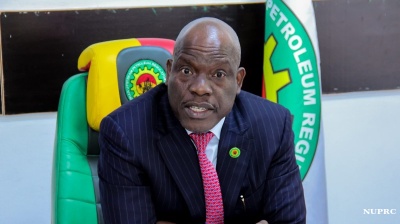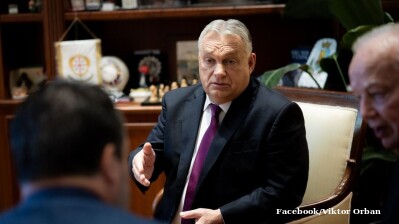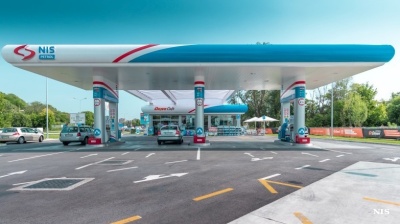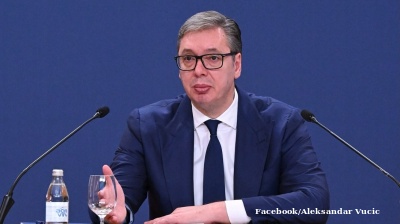Serbia and US celebrated the 100th anniversary since the Serbian flag flew over the White House with a series of events and bilateral meetings in Belgrade and US towns during the week of July 22-28.
There are hopes in Belgrade that remembering the historical alliance of the two peoples will pave the way for further development of their relations that are still strained by memories of the US-led Nato bombing of Serbia in 1999.
“Our ancestors fought together for the same values and laid down their lives in their name. Wars must not be repeated, which is why Serbia is committed to achieving regional peace and stability by making efforts to become a part of united, democratic Europe, and that is why the positive dynamics of bilateral relations with the United States is at the top of our foreign policy priorities,” Serbian Foreign Minister Ivica Dacic said at the closing ceremony at the US Embassy in Belgrade on July 28, when the two countries’ flags were raised together again.
The first (and until now the only) time Serbian flag was raised on the White House was on July 28, 1918. The then US president Woodrow Wilson, on the fourth anniversary of Austria-Hungary’s declaration of war on Serbia, issued a statement to the American people in which he highlighted the courage of the Serbian people in standing up against a bigger enemy in the fight for freedom and independence. Serbia’s is one of only two national flags that have flown over the White House, with the other being the French flag.
Dacic came up with the idea of marking the anniversary. Within Serbia it has been the main news in the local media, mainly because it showed a different approach by the US to Serbia. Besides the joint organisation of numerous events in both countries, which included a ceremony in the US Congress building, most Serbs were pleasantly surprised by the videos created by the US embassy honouring Serbia and prominent Serbs living in the US (such as Nikola Tesla).
Most Serbs still expect criticism from the US over the Yugoslavian civil wars, as well as pressure to accept Kosovo’s independence. Americans are often seen as Serbia’s enemies because of both the 1999 Nato bombing and Russian influence via the media.
At the ceremony on July 28, Dacic appealed to both sides to overcome negative things from the recent past and reach full cooperation based on joint values and mutual interests.
“Referring to president Wilson’s words, when a century ago he called people of the US of all faiths and religions to gather and worship with the Serbian people in mind, I remind you from this place to have in your minds that in our country you have a reliable partner,” Dacic said.
On July 27, speaking in Washington after meetings with senior US officials, Dacic announced that the US administration "openly supports a compromise solution to the Kosovo problem," adding that Serbia should "seize the moment,” B92 reported
"Now the [US] administration is ready to at least talk equally about our proposals for resolving the biggest problem in the region, which is definitely a lasting solution to the problem of Kosovo and Metohija. Today, there is open support for a compromise solution that is very positive and stimulating for Serbia, as an opportunity to reach a solution in the interests of all parties," Beta agency quoted Dacic as saying, citing a press release issued by the Ministry of Foreign Affairs on July 26, B92 reported.
Dacic said furthermore that the new US administration of President Donald Trump created a "more favourable atmosphere" for expressing Serbia's stances and that there is a "greater understanding" of the position of Belgrade, as well as "a desire to reset relations between the two countries", the ministry said, according to B92.
"We will continue our contacts, I repeat, with great US support for the dialogue. It's a big change, because until two years ago when you spoke with American institutions you could only hear that the [Kosovo] issue had been resolved," Dacic said.
Trump's election has helped create a better perception of the US among ordinary citizens, as shown by a recent poll conducted by Belgrade based NGO Institute for European Affairs. According to the poll, 40% of respondents now believe that Serbia-US relations will improve in future. Even though 48% believe that this is not going to happen, this is still a large number having in mind that 37.7% get informed about relations with the US via television channels which most of the time do not report about this subject or report it in a negative context. 19.5% of the poll's participants read about Serbia-US relations on the Internet and 19.5% in local print media, of which the majority is openly pro-Russian. 44% believe that a visit by Trump to Serbia would improve the relations of the two countries while 45% have the opposite stance. The remaining 11% said they didn't know.
News

US strikes on drug vessels kill 14 in deadliest day of Trump's narcotics campaign
The US military killed 14 people in strikes on four vessels allegedly transporting narcotics in the eastern Pacific Ocean, marking the deadliest single day since President Donald Trump began his controversial campaign against drug trafficking.

Russia withdraws from Cold War plutonium disposal pact with US
Russian President Vladimir Putin has formally withdrawn from a key arms control agreement with the United States governing the disposal of weapons-grade plutonium, as the few remaining nuclear security accords between the two powers vanish.

Nigeria’s NUPRC holds exploratory talks with Bank of America on upstream financing
Nigeria's upstream regulator, NUPRC, has held exploratory talks with Bank of America as the country looks to attract new capital and revive crude output, after falling short of its OPEC+ quota.

European diplomacy should have stopped war, Orban tells Italian broadcaster
The job of European diplomacy would have been stopping the war in Ukraine, but Brussels has become "irrelevant" by deciding not to negotiate, Prime Minister Viktor Orban told an Italian TV channel on October 28.




